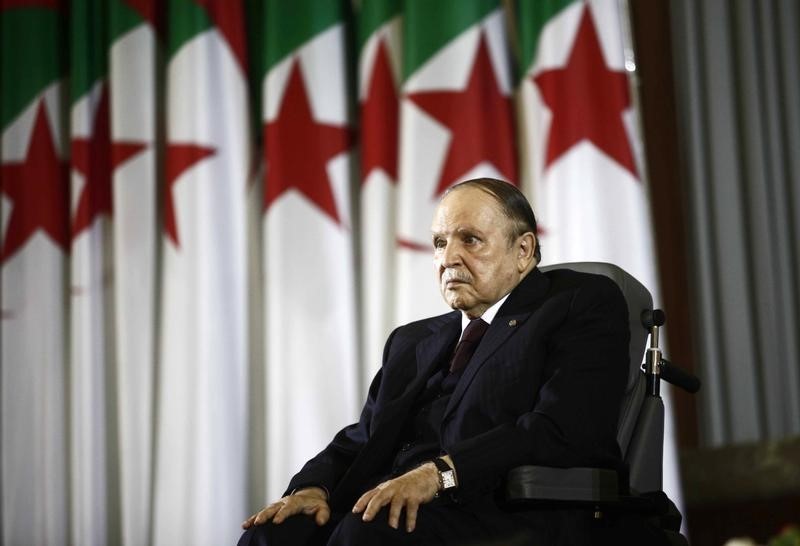By Hamid Ould Ahmed
ALGIERS (Reuters) - Algerian President Abdelaziz Bouteflika named new energy and finance ministers on Saturday in a cabinet reshuffle, as the OPEC member tries to cope with a sharp fall in oil and gas earnings that have placed increasing pressure on its finances.
Nouredine Bouterfa, the head of state power firm Sonelgaz, was named as the new energy minister, replacing Salah Khebri, while junior budget minister Hadji Baba Ammi was appointed to replace Abderrahmane Benkhalfa at the finance ministry, a statement carried by state media said.
No reason was give for the changes, but the reshuffle comes as Algeria struggles to revive its economy and boost oil and gas production, with divergent views over how hard to push for foreign investment and for domestic economic reform.
The North African state has taken some measures to adapt to falling income, including raising subsidized fuel and electricity prices, cutting back on infrastructure projects and trimming budget spending.
But reform has been sluggish, held back by a debate between reformers keen to lessen dependency on oil and gas revenues, and an older guard reluctant to liberalize a state-dominated system.
Economic change is also widely seen as being hampered by uncertainty over a possible succession, with rivals maneuvering in expectation that Bouteflika will step down before the end of his term in 2019.
Among the changes announced on Saturday was the creation of a new position of junior minister for the digital economy and modernization of financial systems, to be held by Mouatassem Boudiaf.
Bouteflika also named former foreign minister Boualem Bessaiah as a special adviser, the presidency said in a separate statement.
It is the fifth reshuffle under Prime Minister Abdelmalek Sellal since he took office in 2012. Khebri and Benkhalfa had only been in their jobs for just over a year, brought in during the last cabinet shakeup in May 2015.
Late last month President Bouteflika fired central bank chief Mohammed Laksaci after more than a decade in the job. Laksaci had been under pressure over his handling of the oil price drop.

Oil and gas still account for 60 percent of Algeria's budget and nearly 95 percent of exports. The country has a cushion of about $140 million in foreign reserves, though these have been falling, and energy earnings fell by nearly 50 percent in 2015.